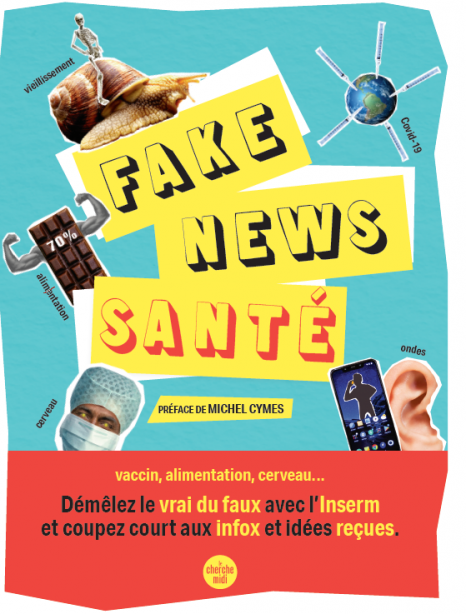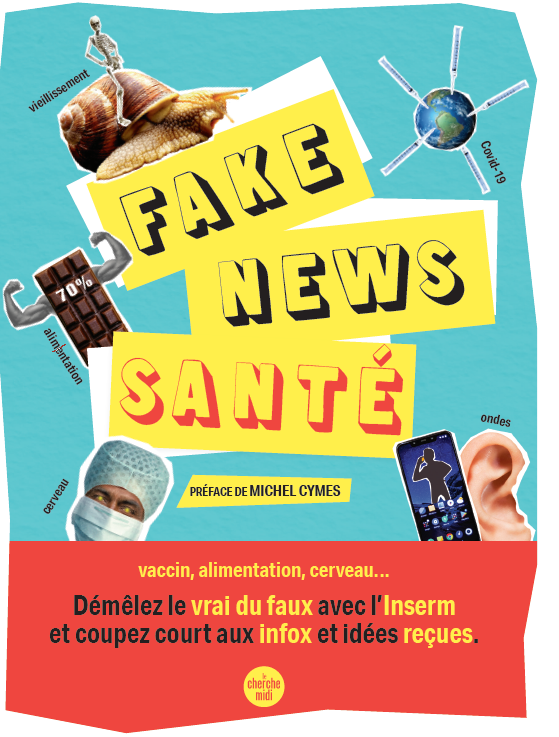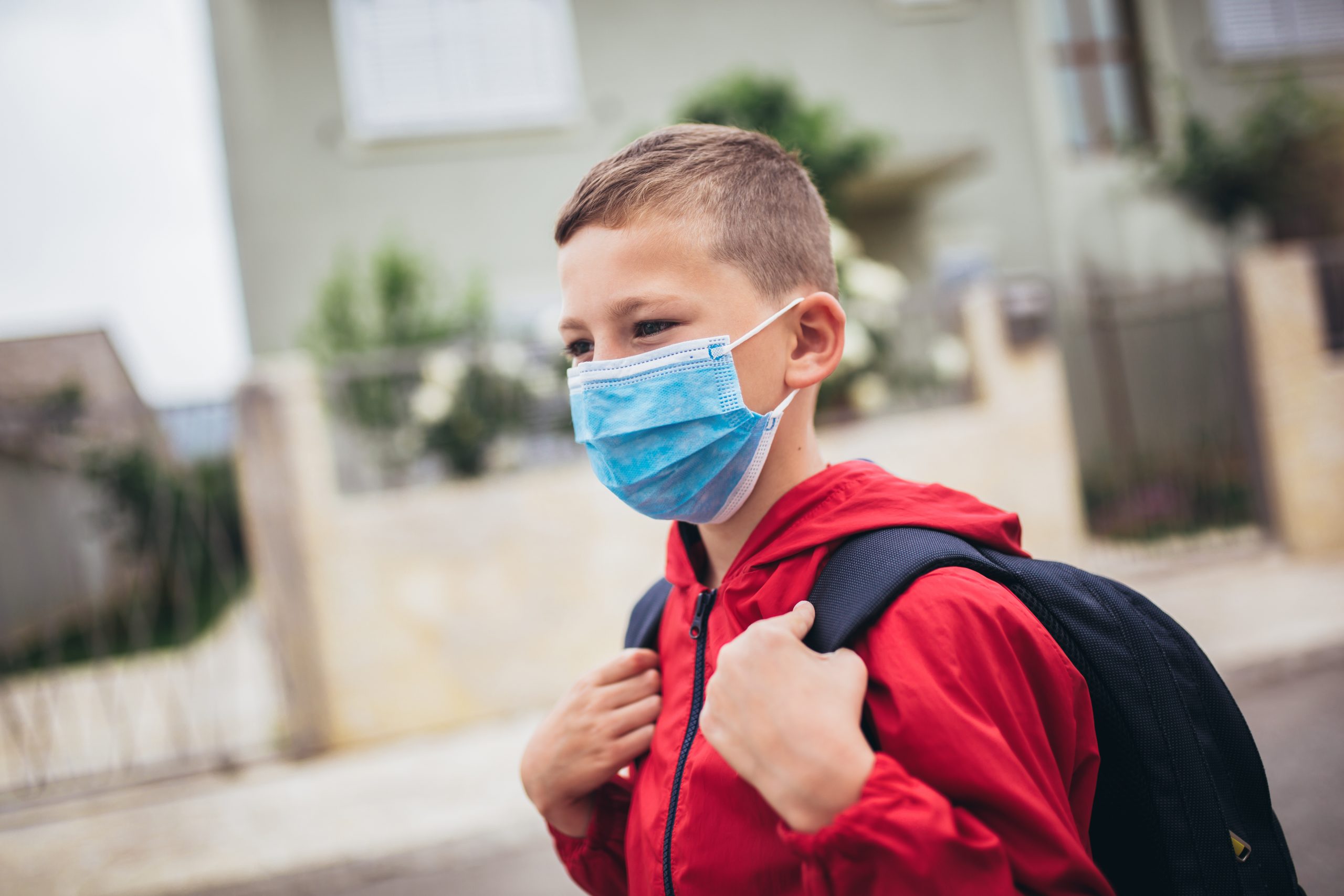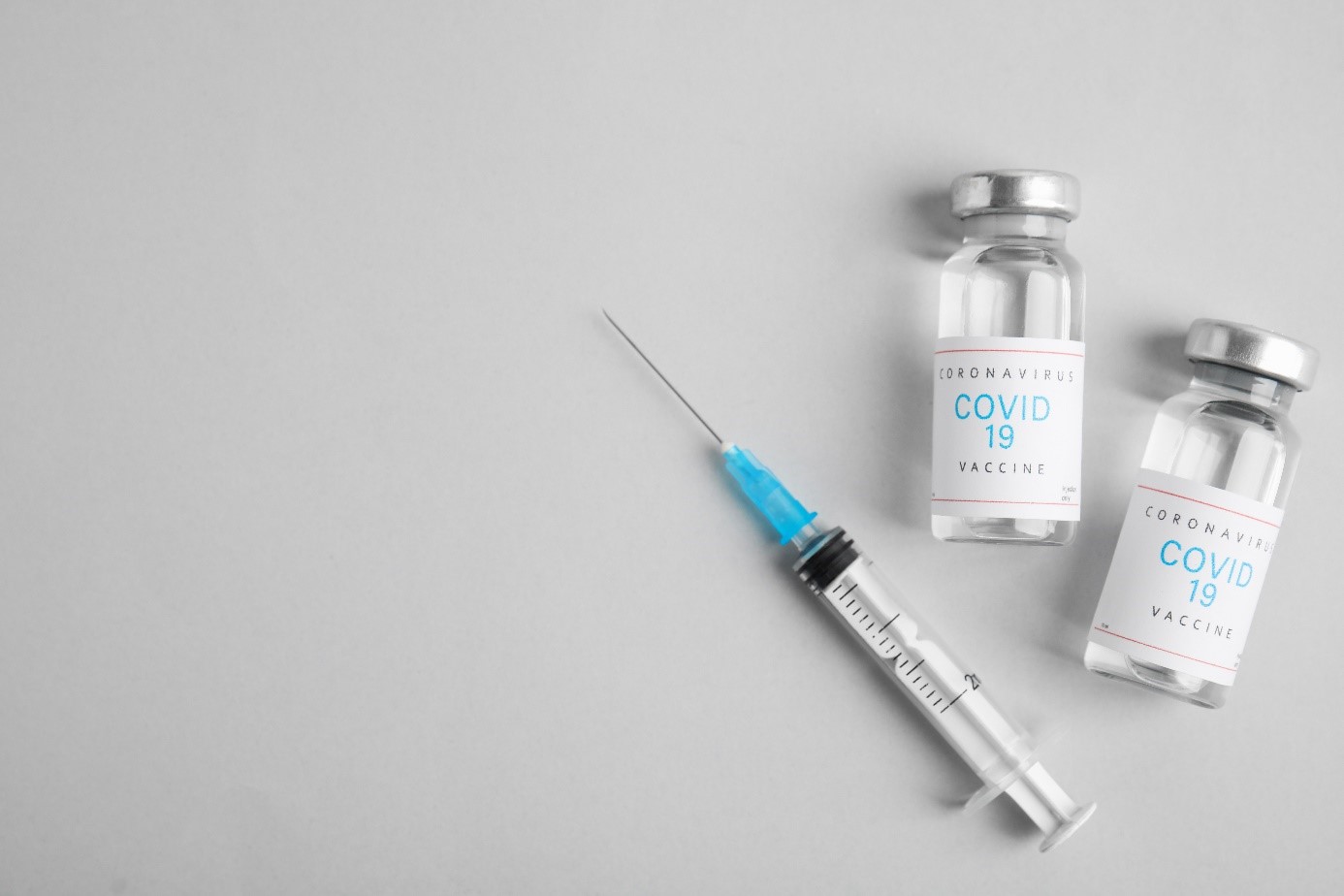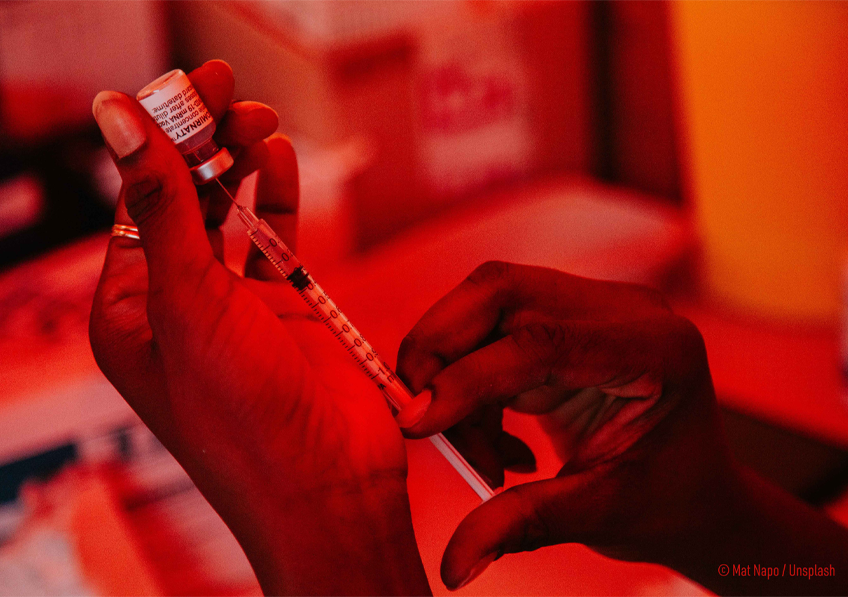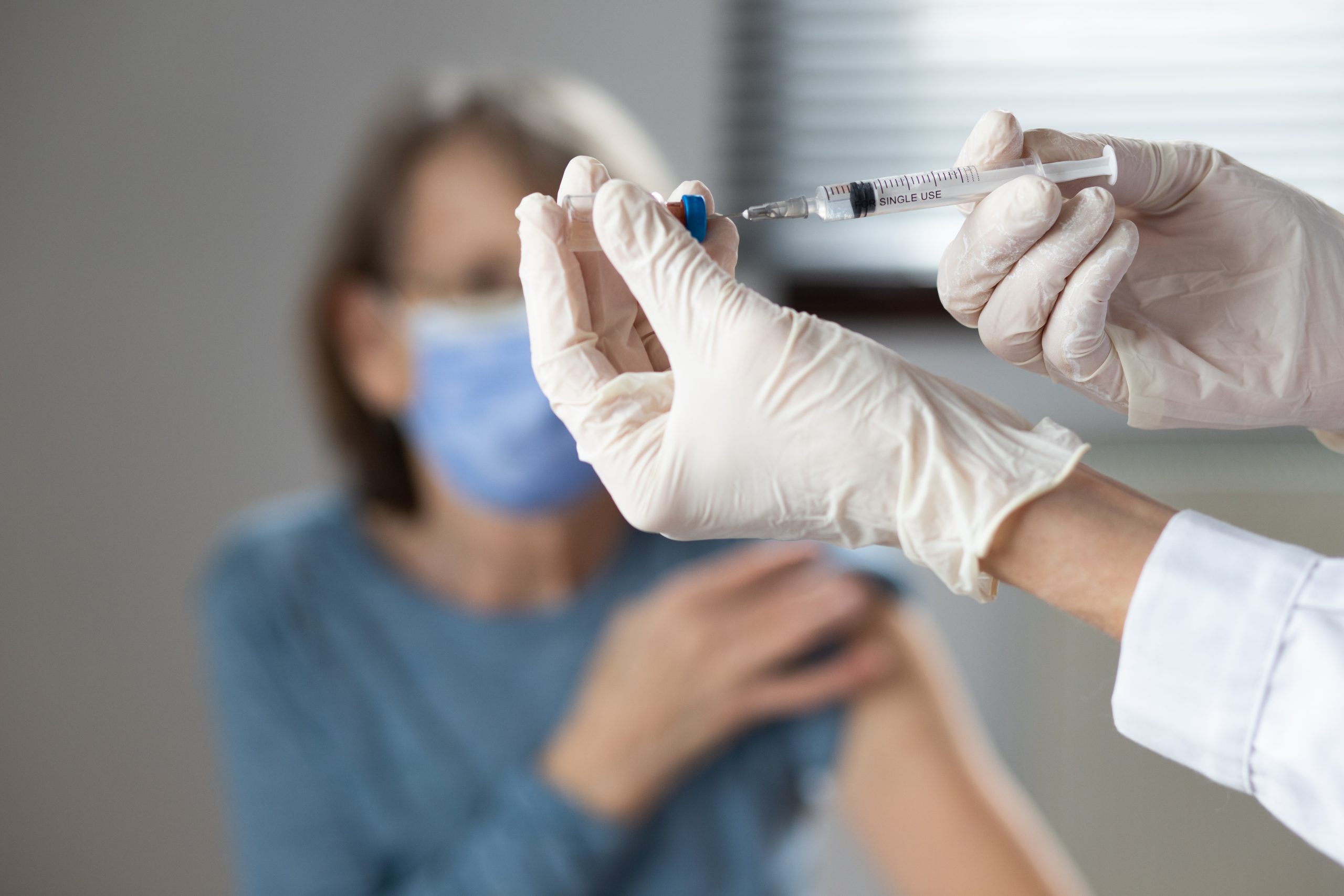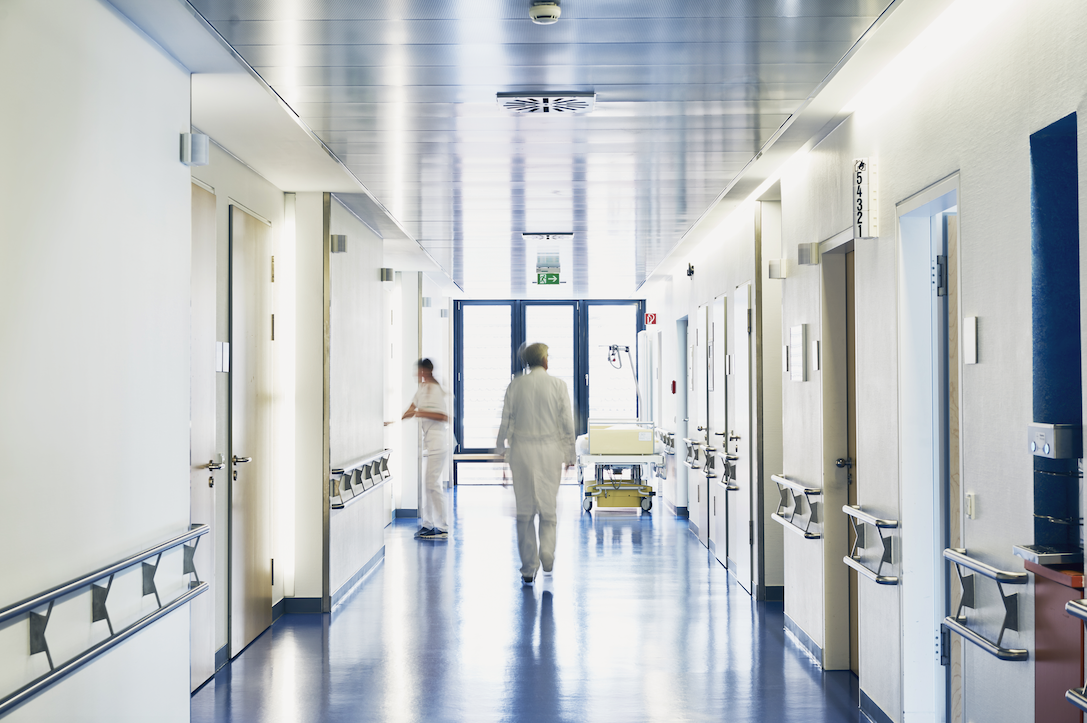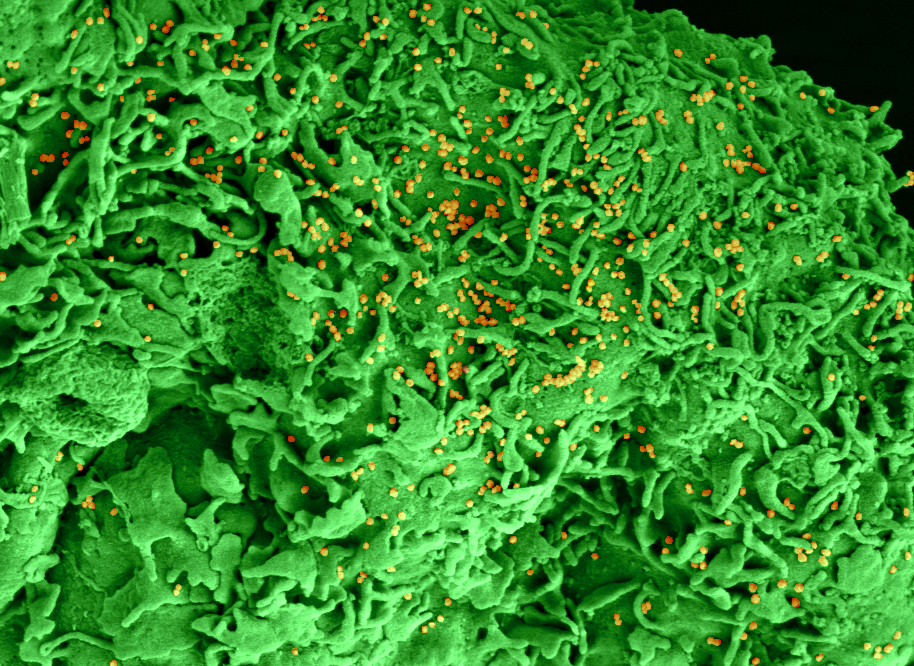
Electronic microscopy of a cell infected with SARS-CoV-2 © Philippe Roingeard, Anne Bull-Maurer, Sonia Georgeault, unité Inserm U1259 MAVIVH & Université de Tours, France
An article published in JAMA Internal Medicine and WHO meta-analysis of 27 controlled trials confirm the promising initial results of the test-CORIMUNO TOCI-1, indicating an improved prognosis of patients with moderate to severe COVID-19 pneumonia. This trial was conducted by the COVID-19 academic research collaboration Assistance Publique-Hôpitaux de Paris / Université Paris-Saclay / Université de Paris / INSERM-REACTing. They reveal the clinical efficacy of tocilizumab, a monoclonal antibody which blocks the receptor for the cytokine interleukin-6 (IL-6) and which is used in particular in the treatment of rheumatoid arthritis.
The 90-day results of the CORIMUNO-TOCI-1 trial published on May 24, 2021 in the journal JAMA Internal Medicine show an improvement in the survival of patients with moderate to severe COVID-19 pneumonia with tocilizumab in highly inflammatory patients .
In some patients with COVID-19 pneumonia, an immune-mediated hyperinflammatory condition contributes to acute respiratory failure and death. The CORIMUNO-19 platform was quickly set up in March 2020 to test the efficacy and safety of various immunomodulatory drugs in adult patients with moderate, severe or critical COVID-19 pneumonia, thanks to a series of ‘multicenter randomized controlled trials, which began on March 27, 2020 and are currently continuing.
Tocilizumab is a monoclonal antibody that blocks the cytokine interleukin-6 (IL-6) receptor.
The CORIMUNO-TOCI-1 randomized trial that compared tocilizumab with the usual treatment, published on October 20, 2020 in the journal JAMA Internal Medicine with a 28-day follow-up , demonstrated that tocilizumab had a 95% chance of reducing the need for ventilation (mechanical or non-invasive) or death at D + 14 (Hazard ratio (HR) = 0.58 (0.33-1.00), but did not decrease mortality at D + 28 (11% and 12%, respectively).
The new update results of this study published on May 24, 2021 in the same journal JAMA Internal Medicine concern longer-term survival (D + 90) and according to the inflammatory state of the patient, in particular according to a threshold of C reactive protein (CRP) (150 mg / L) at the start of treatment.
Mortality at D + 90, a secondary endpoint of the trial, is numerically but not significantly lower in the treated group (11% vs. 18%; HR = 0.64 [0.25-1.65]. A post-hoc analysis shows an interaction between survival and CRP level with, in the group of patients whose CRP is> 150 mg / L, a reduction in mortality with tocilizumab (9% versus 35%; HR = 0.18 [0.04 to 0.89]. the CRP is <or = at 150, the mortality is very low in the 2 treatment groups.
These results obtained on secondary endpoints and in post-hoc analysis had to be confirmed by additional studies and a meta-analysis of all the controlled trials. This is what was done by a group of WHO researchers.
U do the WHO meta-analysis of 27 controlled trials evaluating inhibitors of IL-6 in patients hospitalized for pneumonia Covid-19 confirms a profit of these drugs on survival . It was published in JAMA on July 6, 2021 .
A meta-analysis was carried out by the WHO on all the randomized trials that evaluated inhibitors of IL-6 or its receptor in patients hospitalized with COVID-19 pneumonia requiring oxygen or ventilation. non-invasive or mechanical.
In this prospective meta-analysis of 27 randomized trials (including 4 trials from the CORIMUNO platform) that included 11,112 patients, 2,565 of whom died, 28-day mortality and progression to invasive mechanical ventilation or death were lower in patients who received interleukin-6 antagonists compared to those who received usual care or a placebo (OR = 0.86 [95% CI, 0.79-0.95]; P = 0.03 and OR = 0.77 (95% CI, 0.70-0.85, P <0.001) respectively).
For the 19 trials that evaluated the effect of tocilizumab, the effect on 28-day mortality and progression to invasive mechanical ventilation or death was 0.83 (95% CI, 0.74-0.92; P <0.001 and 0.74, respectively) (95% CI, 0.66-0.82).
In this meta-analysis, tocilizumab did not cause more secondary infections than usual treatment.
In total, these two articles confirm the promising initial results of the CORIMUNO-TOCI-1 and RECOVERY trials.
One of the important questions that remains unanswered is: “Should IL-6 receptor inhibitors replace the standard treatment of these patients which has now become corticosteroid therapy or be added to it?” “.
The CORIMUNO-TOCIDEX protocol which compares dexamethasone alone to the combination of dexamethasone with tocilizumab and which included more than 450 patients is currently attempting to answer this important question.
WHO is due to make recommendations soon on the use of tocilizumab in the different subgroups of patients hospitalized for COVID-19 pneumonia. The FDA announced on June 24, 2021 an emergency authorization for the use of tocilizumab in severe coronavirus lung disease.
Coordinating investigator: Prof. O. Hermine, Hôpital Necker, AP-HP, Imagine Institute, INSERM U1163, University of Paris
Co-coordinating investigator: Prof. X. Mariette, Bicêtre Hospital, AP-HP, INSERM U1184, Université Paris-Saclay
- Scientific Director: Dr PL Tharaux, Paris Cardiovascular Research Center (PARCC), INSERM U970, European Hospital Georges Pompidou, AP-HP, University of Paris.
Design and coordination of the CORIMUNO trial platform: Pr P. Ravaud, Center for Clinical Epidemiology, Hôpital Hôtel Dieu, AP-HP, CRESS, INSERM U1153, University of Paris
Statistician: Dr R. Porcher, Center for Clinical Epidemiology, Hôpital Hôtel Dieu, AP-HP, CRESS, INSERM U1153, University of Paris
- Monitoring and data management: Pr M. Resche-Rigon (Clinical Trial Unit, Hôpital Saint Louis, AP-HP), CRESS, INSERM U1153, University of Paris.
Organization of the data collection: Pr M Dougados, Hôpital Cochin, AP-HP, CRESS, INSERM U1153, University of Paris
The CORIMUNO-19 clinical trials platform is promoted and funded by Assistance Publique – Hôpitaux de Paris, and supported by Inserm via its REACTing consortium (integrated into the ANRS Emerging Infectious Diseases since January 2021).
The trial received funding from the Clinical Research Hospital Program of the Ministry of Health, seed funding from Inserm through the REACTing / INSERM consortium via the Fondation pour la Recherche Médicale, Paris, France, and a funding from the AP-HP Foundation for Research, Paris, France. Tocilizumab as well as 4,000 Elecsys interleukin 6 assay kits were unconditionally provided by the Roche laboratory, which was not involved in the assay design, data collection, analysis, interpretation, writing of the manuscript nor in the governance of the essay.

